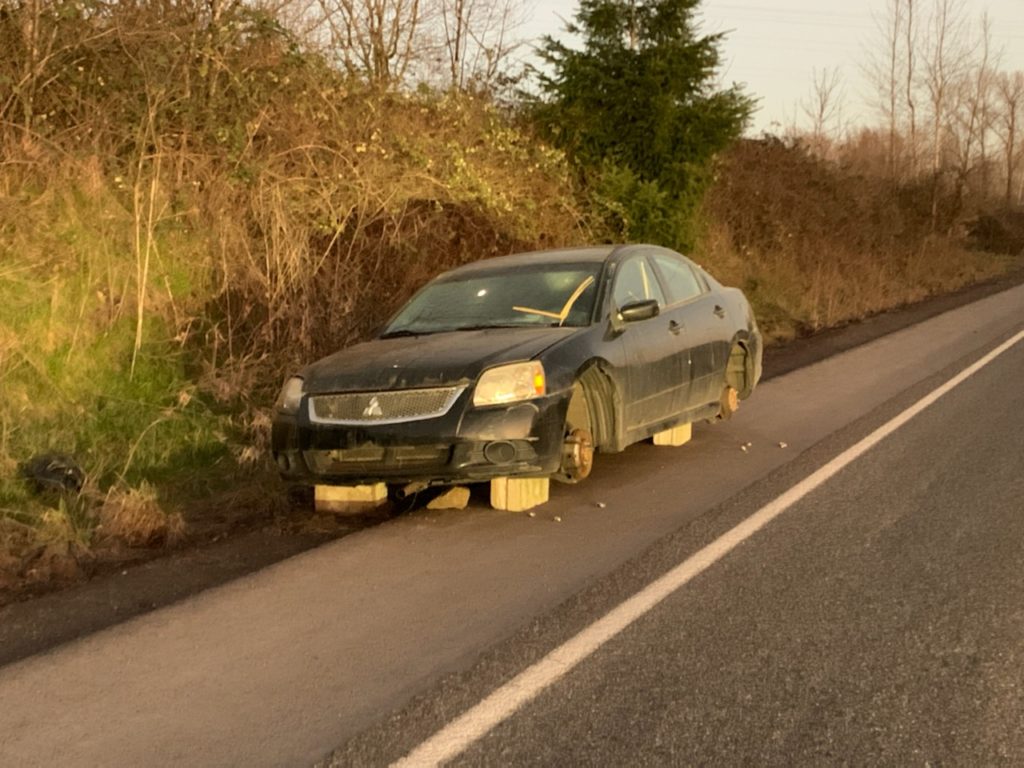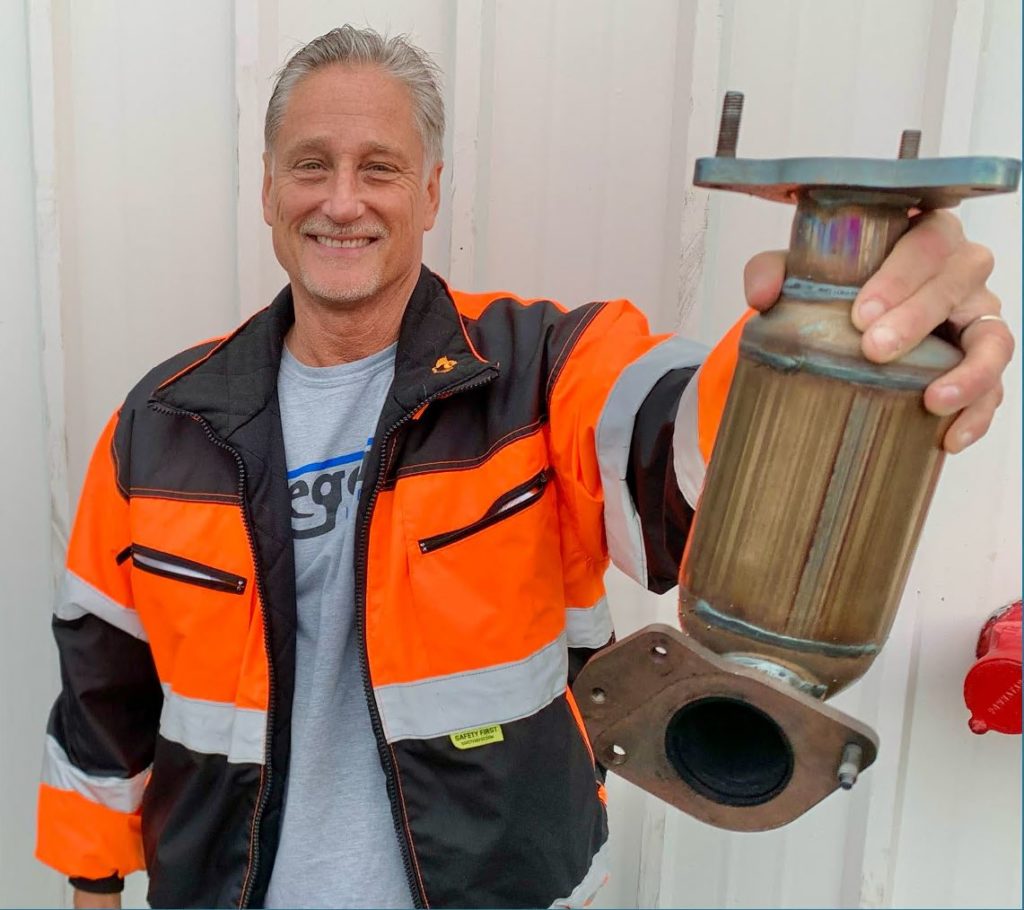Wilson led fight in Senate for tough new measure
 Last month, as lawmakers negotiated the catalytic converter bill, someone parked a car across the street from Sen. Jeff Wilson’s house in Longview. Within days thieves had it up on blocks, the wheels were stripped and the catalytic converter was lopped off the tailpipe. “It was as if someone was trying to send me a message,” Wilson said. “Don’t give up on the bill.” (Photo credit Jeff Wilson)
Last month, as lawmakers negotiated the catalytic converter bill, someone parked a car across the street from Sen. Jeff Wilson’s house in Longview. Within days thieves had it up on blocks, the wheels were stripped and the catalytic converter was lopped off the tailpipe. “It was as if someone was trying to send me a message,” Wilson said. “Don’t give up on the bill.” (Photo credit Jeff Wilson)
OLYMPIA – Washington lawmakers gave final approval late Tuesday night to a bill cracking down on catalytic converter theft, after a session-long effort by Sen. Jeff Wilson to pass a bill with teeth.
House Bill 1815, heavily amended in the Senate with provisions advocated by Wilson, passed the Senate 48-0 last Friday, and cleared the House on Tuesday with a 97-0 vote. The bill now moves on to the governor’s desk for final consideration.
“They say laws are like sausages, and you really don’t want to watch ‘em being made,” Wilson said. “I got a chance to see that principle in action this session. I don’t think any bill was worked as hard as this one this year, with as many revisions, negotiations and compromises. The final result is something the Legislature can be proud of. And the fact there were no dissenting votes shows us how well we did our job.”
The measure is prompted by fast-rising catalytic converter thefts nationwide and in the state of Washington, fueled by rapid increases in precious metal prices and high prices paid by scrap metal businesses for recyclable catalytic converters. The converters, installed on all cars sold in the U.S. since 1975, contain palladium and rhodium. Thousands have been stolen in Washington alone over the last two years.
Wilson got the ball rolling before session started by introducing Senate Bill 5495, modeled after a similar statute in Oregon imposing tough new penalties on catalytic converter theft and purchases of stolen catalytic converters. By the time all affected industries had their say and lawmakers had a chance to weigh in, the finished product looked rather different.
The final version of HB 1815 places new requirements on scrap yards and auto wreckers that purchase used catalytic converters for recycling, launches a new grant program for local law enforcement sting operations, and creates a task force to recommend further changes to state law.
Wilson said he was disappointed that the Legislature chose not to create new crimes of unlawful possession of a catalytic converter and attempted unlawful sale, but said he expects the issue to resurface in next year’s legislative session.
“This isn’t just a nuisance crime,” Wilson said. “It’s an epidemic. Thousands of Washington residents have been victimized, and the cost to repair a vehicle after tailpipes and sensors have been sawn through can be immense. We need to cover all the angles, and felony penalties for catalytic converter thieves should be one of them.
“I’m sure this is something the task force will consider, and that the Legislature will be dealing with this issue next year. In the meantime, the most important thing is to take action now, before more catalytic converters are stolen. What we’re doing this year is breaking the chain and eliminating the incentive for catalytic converter theft, by making it extremely difficult to sell a stolen catalytic converter to a legitimate business in the state of Washington. It’s a great place to start.”
HB 1815 contains the following major provisions:
• Washington State University would convene a catalytic converter workgroup to make recommendations to reduce catalytic converter theft, including changes to state law. Members would include representatives of police, prosecutors, courts, affected industries, insurers and crime victims. A final report would be due Jan. 1, 2023.
• New requirements would be placed on scrap metal businesses that purchase used catalytic converters. Individual sellers would have to document they own the vehicles from which catalytic converters are removed, and purchases would be prohibited if sellers fail to produce a valid driver’s license or government photo ID card.
• Cash payments on the spot would be prohibited, and payments would have to be made by check after three days.
• Auto wreckers purchasing catalytic converters for resale to scrap yards would be subject to similar purchasing requirements.
• Violations of the purchasing rules would be a gross misdemeanor, with a fine of $1,000 per catalytic converter.
• The Washington Association of Sheriffs and Police Chiefs would develop a comprehensive law enforcement strategy, training courses and a grant program for local law enforcement agencies in high-crime areas. Money would be used to fund police sting operations and other efforts.
• Persons who attempt to buy or sell stolen catalytic converters would be added to the state’s “no-buy” database.
• The bill declares an emergency and takes effect immediately upon signature by the governor.

Sen. Jeff Wilson, R-Longview, and catalytic converter. (Photo credit Jeff Wilson)








